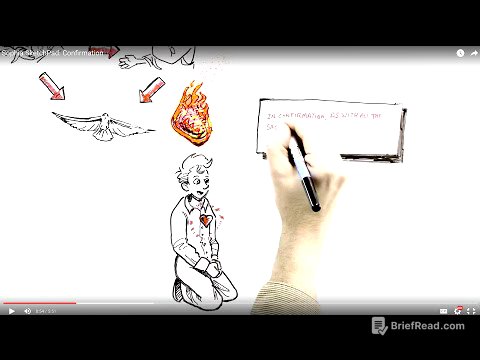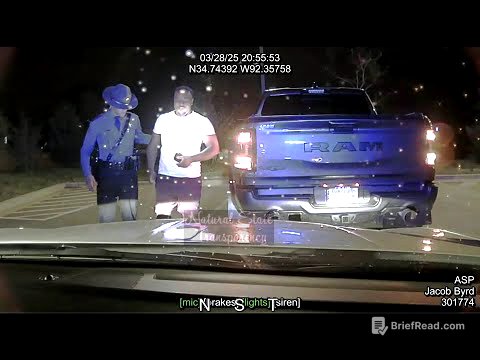TLDR;
This video provides essential tips for computer science students to succeed in college. It emphasizes seeking help, breaking down large projects, avoiding procrastination, paying attention to small errors, compiling code regularly, and testing sample code. By following these tips, students can stay ahead and manage the challenges of their CS coursework effectively.
- Seek help when needed.
- Break down large projects into smaller tasks.
- Avoid procrastination to manage errors effectively.
- Pay attention to small errors.
- Compile code regularly to catch errors early.
- Test sample code before using it.
Introduction [0:01]
Cat Miller introduces the topic of the video, which is to provide computer science students with tips for succeeding in college. She mentions that the advice is collected from former CS students. The video skips over basic advice like attending class and doing homework, and instead focuses on specific strategies for CS majors.
Seek Help When You Need It [0:25]
The video emphasizes the importance of seeking help when facing difficulties in CS courses. It addresses the common hesitation some students have about attending office hours or asking for extra assistance. The video highlights that these resources are available for a reason and taking advantage of them can significantly improve understanding and performance. Seeking help early can prevent negative consequences like bad grades.
Don't Be Intimidated by Large Projects [1:00]
The video advises students to break down large projects into smaller, manageable tasks as soon as the assignment is given. This approach makes the project less overwhelming and helps in identifying solutions more easily. By focusing on smaller tasks, students can tackle problems one at a time, reducing the overall stress and complexity of the project.
Avoid Procrastination [1:22]
The video stresses the importance of not procrastinating, even if the solution seems obvious. Errors in computer science can be unpredictable, and it's crucial to allocate enough time to address them. Even seemingly minor errors can be difficult to find and fix, so starting early is essential to avoid last-minute complications.
Silly Errors Are No Small Thing [1:45]
The video highlights that in computer science, even small errors can have significant consequences. A missing semicolon or other minor mistake can cause an entire program to fail, potentially resulting in a failing grade. The video advises students to pay close attention to detail and avoid overlooking these seemingly insignificant errors.
Stop and Compile Regularly [2:16]
The video recommends compiling code regularly to catch errors as they appear. This makes it easier to locate and fix errors since they could only have occurred since the last compilation. While it may be inconvenient to stop and compile frequently, it is preferable to facing a large number of errors at the end of the project.
Always Test Sample Code Before You Use It [2:44]
The video advises students to test sample code before incorporating it into their projects. Assuming that sample code works correctly can lead to problems that are difficult to trace. Testing the code beforehand can prevent it from becoming the source of errors and save time in the long run.
Freshman Year [2:55]
The video concludes by reassuring freshman students that the initial year is for learning and figuring things out. Staying on top of assignments and keeping the mentioned tips in mind will help students stay ahead of their classmates.









